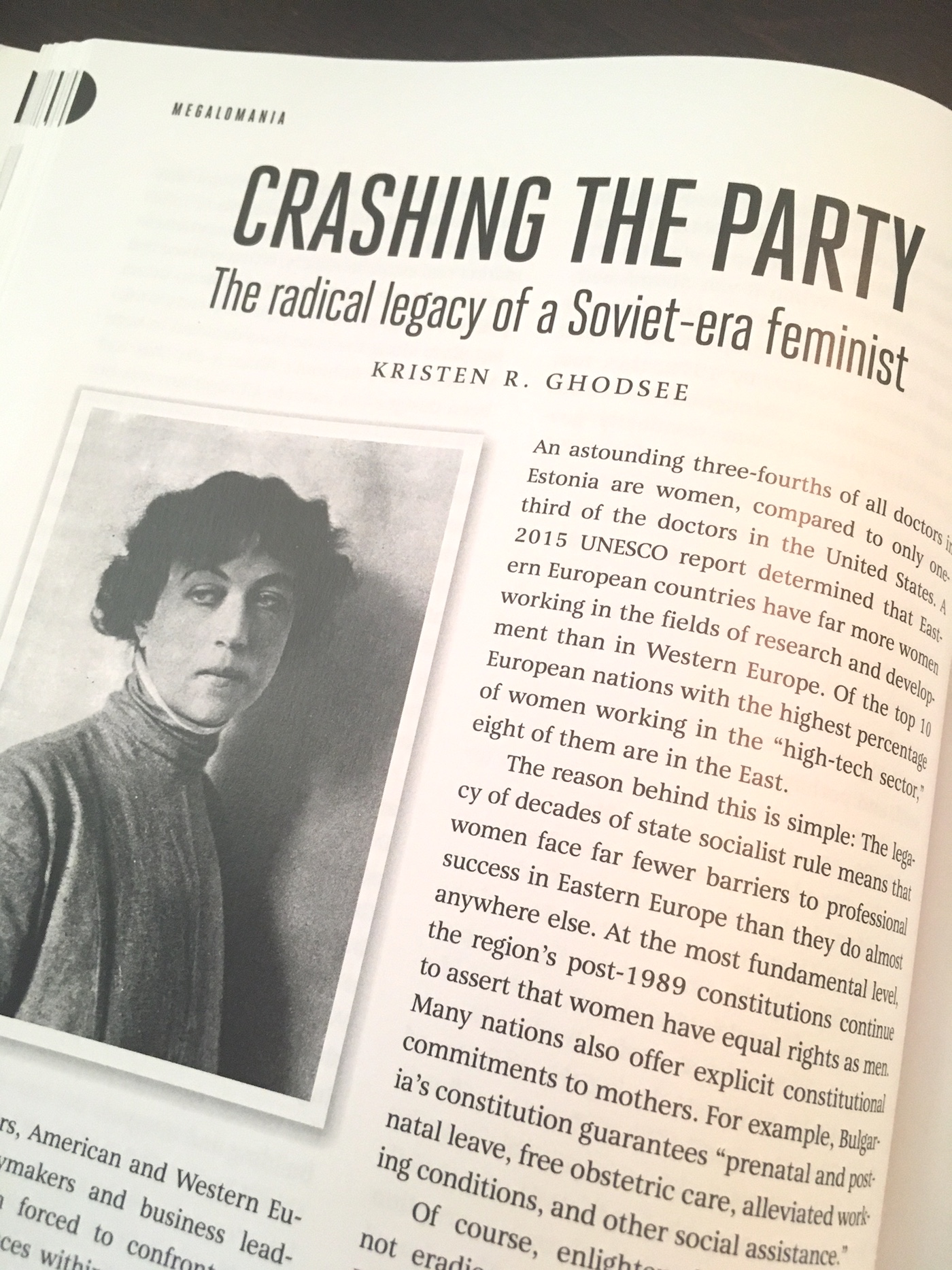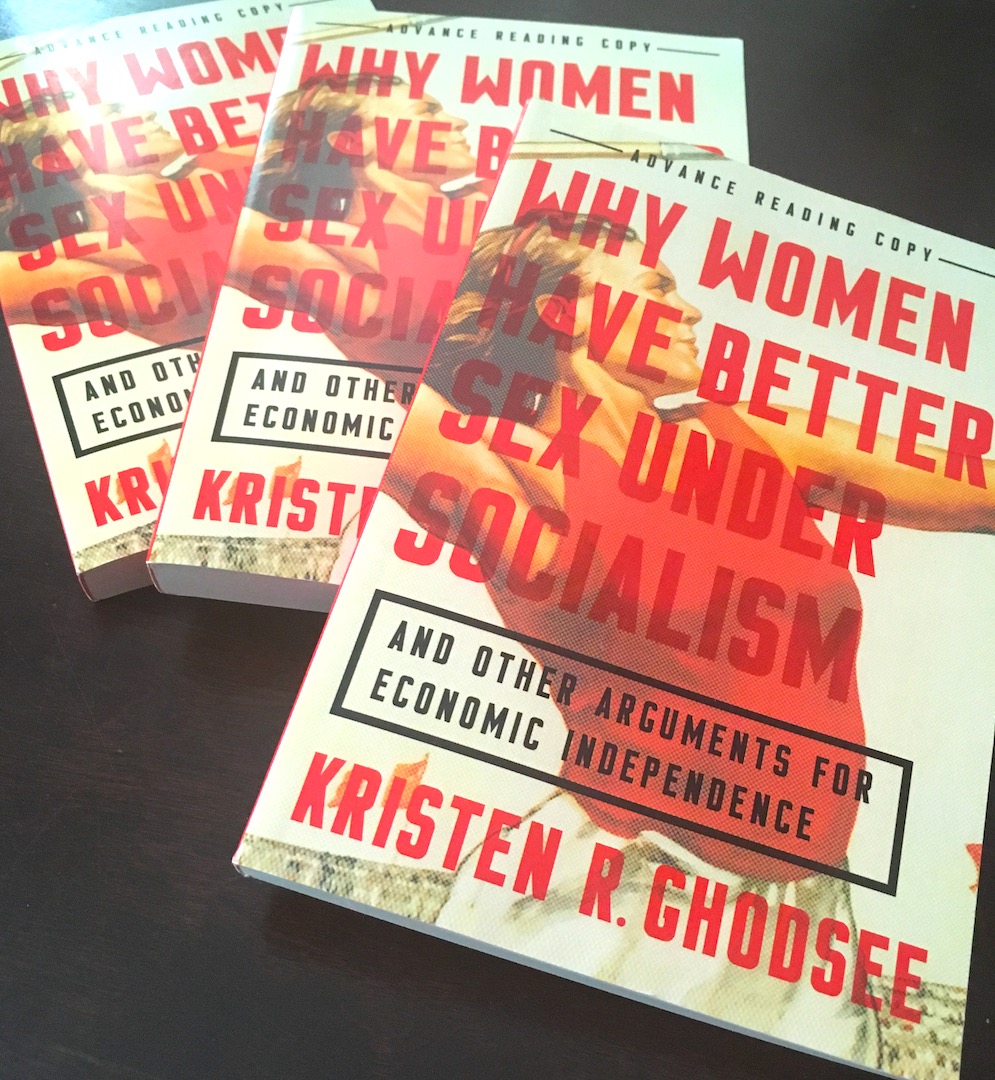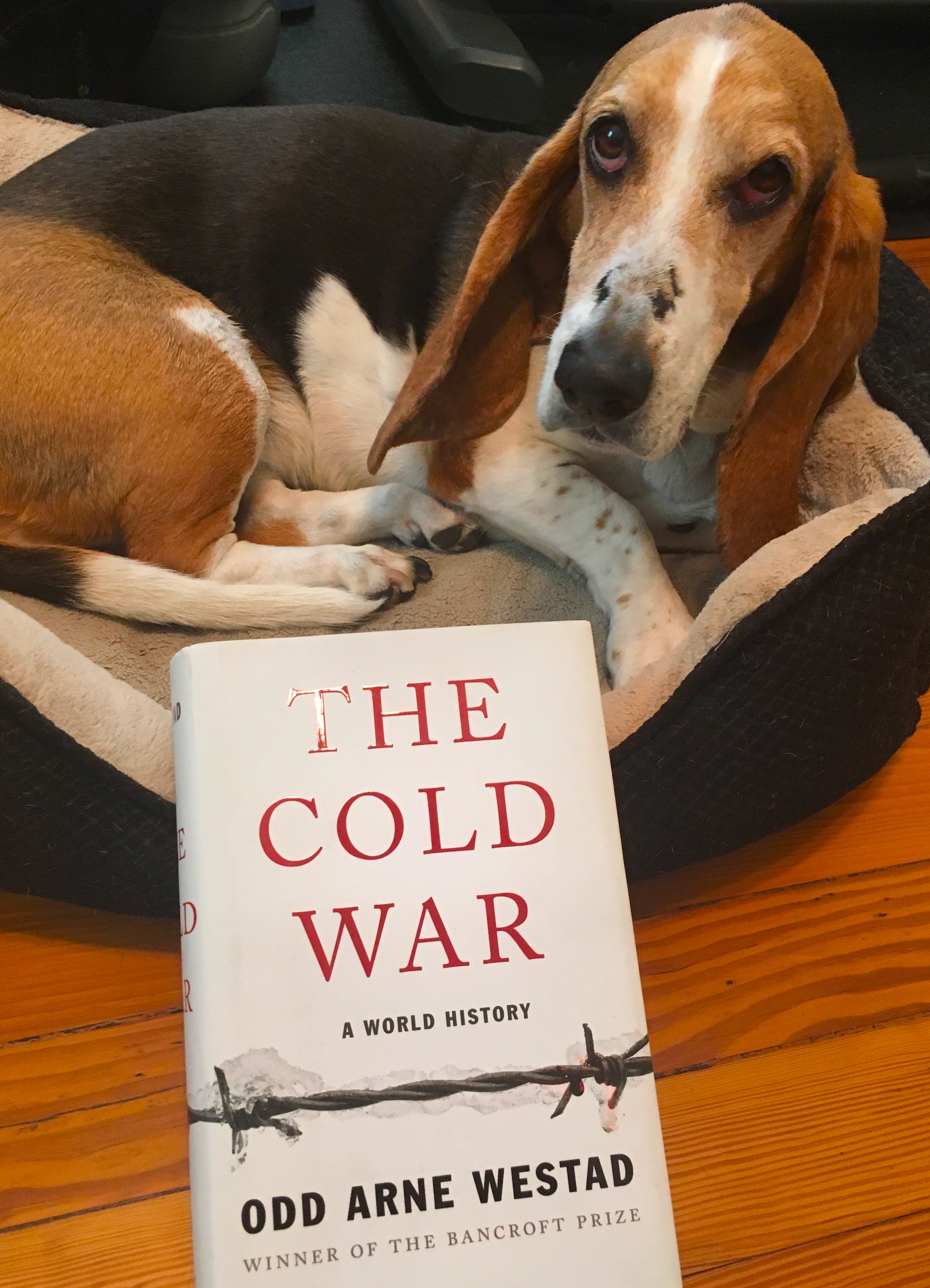This is my first public presentation on my project dealing with the history and material culture of East European typewriters.
Life in Socialism book
I picked up this little book for children at the Museum of Yugoslavia. Here are the pages about women’s rights.
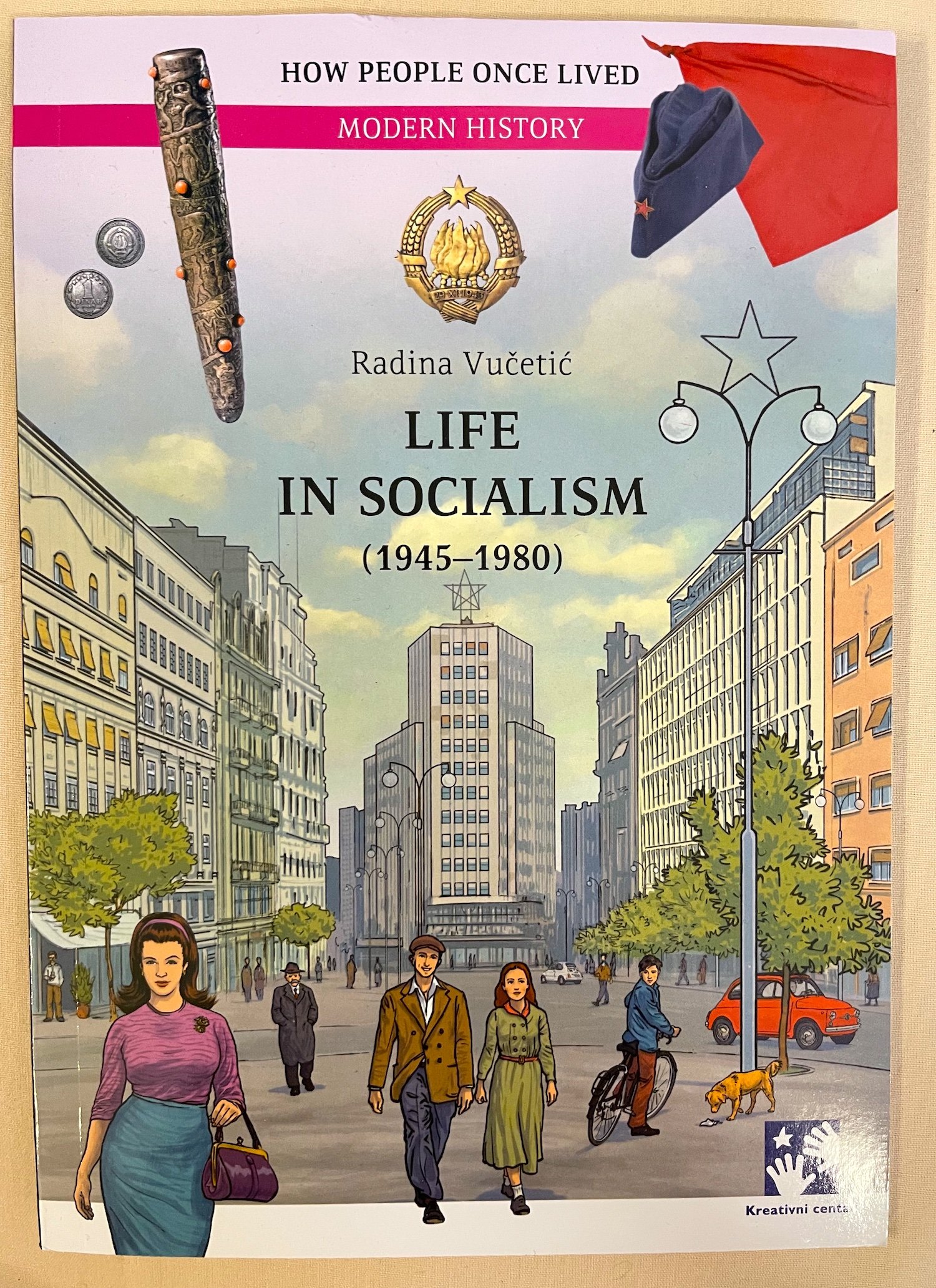
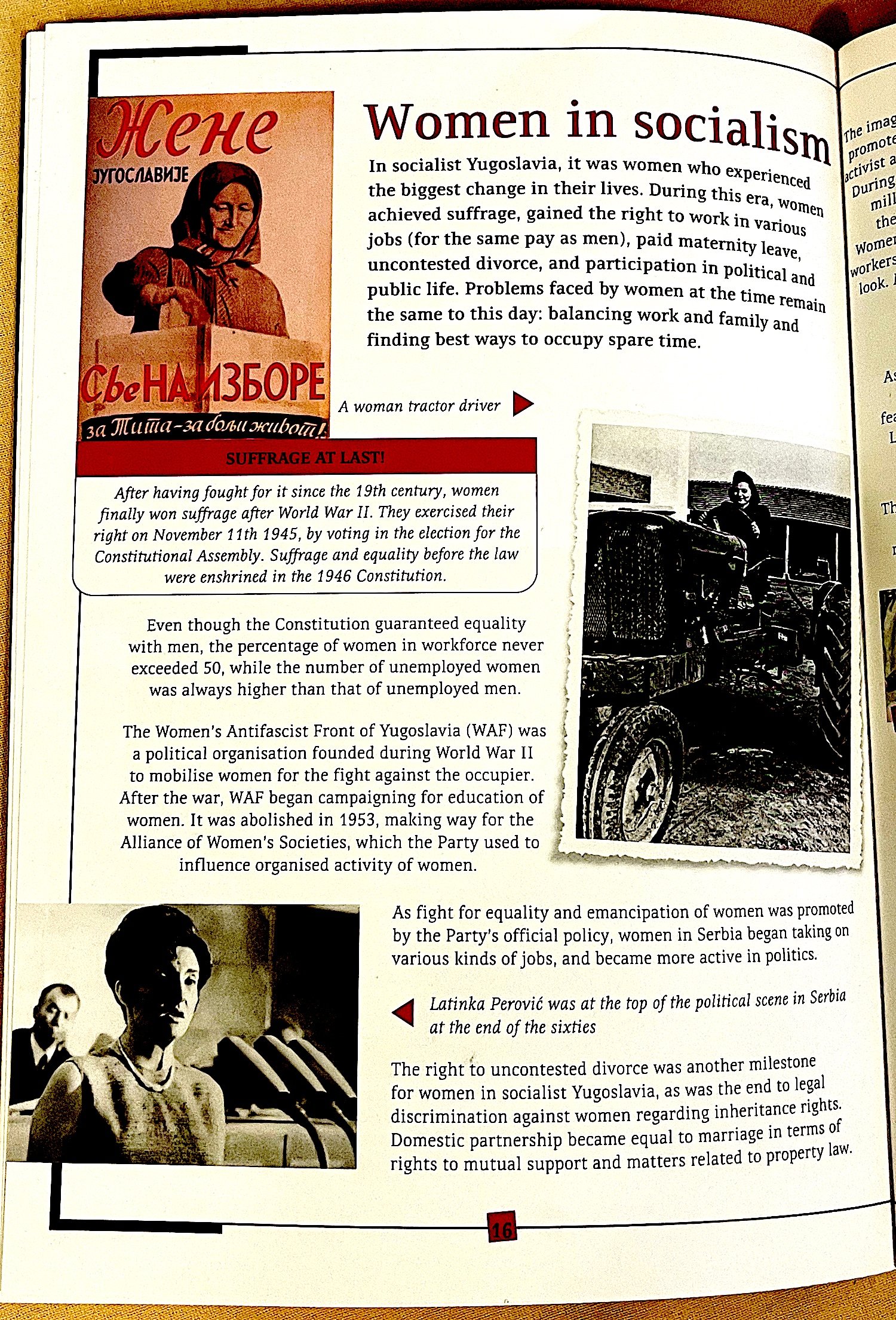
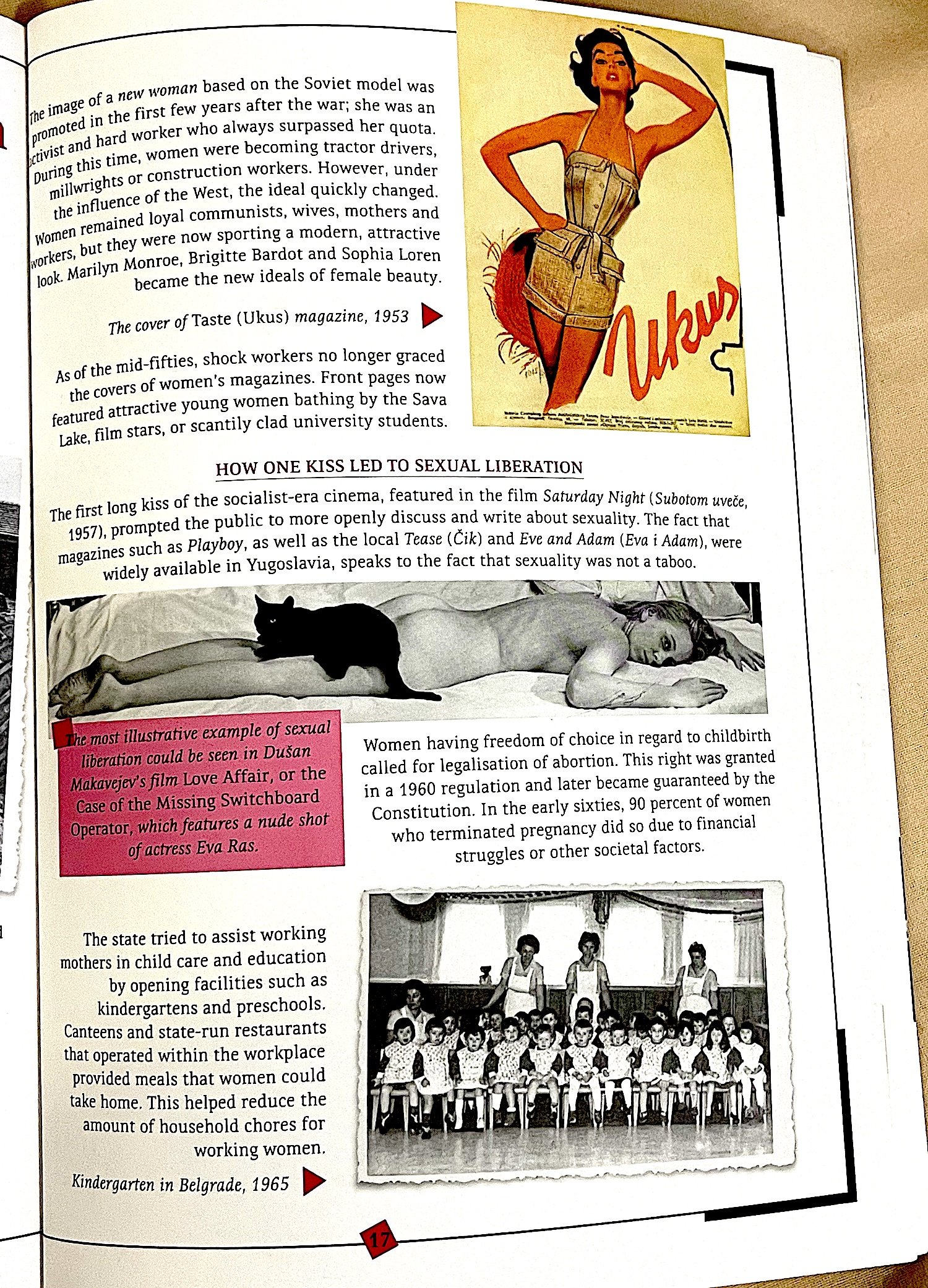
News item from June 1, 1942
I love this little dispatch from the New York Times in June of 1942 when the Soviet sniper, Lyudmila Pavlichenko, was recognized for her 257 conformed Nazi kill. She accepted her award with only three words: “i’ll get more.” She kept her promise. After four injuries, she left the front lines later in the year with 309 confirmed kills in her sniper’s tally book.
Happy International Women's Day!
My new article in the Baffler →
My newest article: “An American Tale: How Cold War Officialdom Made the World Safe for Propaganda” is online as of today!
Winter academic reading
My spring semester is about to start, but I had some time to delve into some great books about Eastern Europe and the politics of knowledge production during the Cold War. I wrote review of Birth of Democratic Citizenship and To See Paris and Die, I read Know Your Enemy for the first time and it inspired me to go back and reread Laura Nader’s and Noam Chomsky’s essays in The Cold War & The University.
Meagan Day asked great questions for this Jacobin interview
It’s always a pleasure to talk to such smart and thoughtful journalists. I enjoyed this interview very much.
New Book Cover
Just received the design for my next academic book, Second World, Second Sex: Socialist Women's Activism and Global Solidarity during the Cold War, coming out with Duke University Press in February 2019. I specifically asked that it not be red, and I love what they did with the cover.
New article in the World Policy Journal
The Summer issue of the World Policy Journal just arrived in the post with my new article on the Russian women's activist, Alexandra Kollontai. It is always a thrill to see one's words in print on nice, glossy paper. And I am even more delighted to share an issue with Slavoj Zizek!
Advanced galleys are here!
These arrived in the post yesterday. These are the bound galleys that will go out for long-lead media and potential blurbers. After months of slaving away on this, it's so satisfying to see my words manifest in print.
Summer Reading: The Cold War: A World History
A sweeping history of the Cold War, but Westad doesn't have much to say about women. So far, I've found only one relevant paragraph which segues immediately into a discussion of militarism.
A perfect book for Bassett hounds and history buffs.
“One of the biggest changes throughout the Communist world was in the position of women. All over eastern Europe and eastern Asia the position of women had been governed by patriarchal traditions that gave them little say over resources, work, or family affairs. In areas that had had a taste of capitalism, new opportunities for women were mixed with increased social and economic exploitation. The Communist parties set out to change this sorry state of affairs, and at first many women were able to benefit from the new policies. Access to education, work, and child care improved dramatically in many places. So did women’s control over their own lives. The right to divorce and availability of birth control made for big changes in gender relations. But women were still kept out of political leadership positions, and as the regimes wanted to increase their populations, many women found themselves increasingly caught between work and duties to their families. The dual burden on women turned out to be as troublesome in societies that called themselves socialist as they were in the capitalist countries, and the on-going conflict between progressive ideas and traditional norms at least as intense.”








